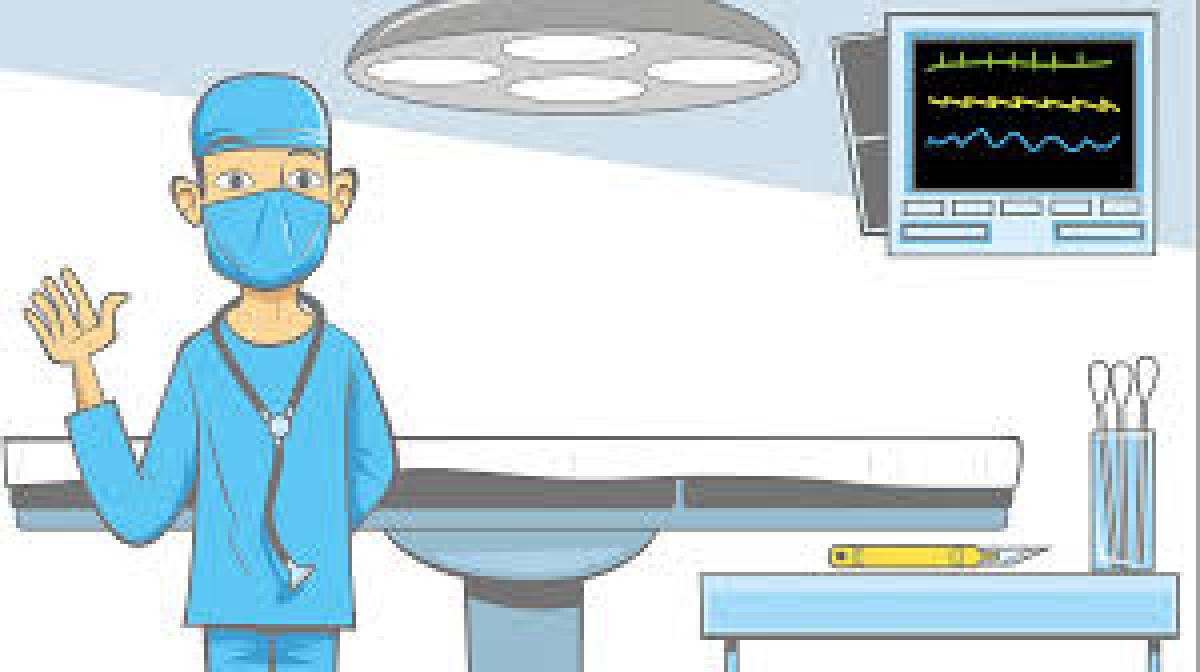The operating theatre, sometimes called the OR, is where a surgeon works on or inside the body to fix something that is wrong. Having surgery is also called having an operation.
Where?
If your surgery isn’t an emergency, you’ll have an appointment when you need to come to the hospital and get ready for the surgery. You’ll see someone at the reception desk, who will take lots of information like your name, address, phone number, your parents’ names and more. Sometimes, you’ll check into the hospital to stay a while after your surgery. Other times, you might just have minor surgery and be able to go home that same day.
If it’s an emergency, you’ll be rushed in through the Accident and Emergency department (more about that in Episode 19 – Accidents and the A&E).
Who are the people?
As well as the surgeon and the anaesthetist, many nurses work in the OR. All wear masks to keep the operating theatre germ free, the people who work there wear caps over their hair and masks over their mouths and noses to avoid spreading germs. They even wear booties over their shoes! They might all look alike, but everyone has a different job.
Operating theatres generally have no windows and a controlled temperature–humidity environment. Special air filters clean the air and keep the rooms slightly pressurised in relation to the outside. Rooms are supplied with wall suction, oxygen, and possibly other gases. Outside the operating theatre is a dedicated scrubbing area that is used by surgeons, anaesthetists and nurses prior to surgery.
What happens?
If you will be going to sleep for the surgery, you probably won’t be able to eat breakfast. That’s because having food or even water in your stomach can make it dangerous to give you anaesthetic. You’ll be told ahead of time what you can and can’t eat or drink. After the operation, your doctor will give you the green light to eat and drink again.
After your operation, you’ll be taken to a ‘wake-up’ room, and that’s exactly what you’ll be doing there — waking up! A nurse will be there to see how you’re doing as you wake up. Often, your parents are able to see you in post-op, so when you wake up, they’ll be there. Other times, they may have to wait a while, but you’ll be able to see them soon.
Once you’re fully awake, you’ll either be moved to a hospital ward, where you can wait with your parents while the doctors or nurses see how you’re doing or you may have to stay overnight. Even if you feel great right after surgery, the nurses and doctors will tell you to take it easy. Rest is an important part of getting better. So rest up and feel better soon!
Things to look out for
You won’t see much in the operating theatre as you’ll be asleep, but if you were awake, some of the things that you’d be able to spot are:
- Operating table
- Machines that go ping
- Scalpel
- Swabs
- Operating lights
- X-ray lampbox
.
> Visit Professor Hallux’s Map of Medicine homepage
Images courtesy of the Wellcome Trust
Professor Hallux’s Map of Medicine
Find out how to navigate Professor Hallux's Map of Medicine
More From Professor Hallux’s Map of Medicine



